Winston Churchill in 1939 famously described Russia as “a riddle, wrapped in a mystery, inside an enigma.” And for decades, if not centuries, the Western fascination with Russia as some sort of exotic, mysterious and enthralling alternative persisted. But now, at last the ugly predatory monster has been revealed for what it always was and continues to be.
Back in August 2008, Alan Cowell of The New York Times suggested that Churchill meant that Russia is “an inscrutable and menacing land that plays by its own rules, usually to the detriment of those who choose more open regulations.” Russia’s onslaught this year against its Ukrainian neighbor has forced even its supposed friends in Berlin and Paris to change their tune and put up their hands in horror.
There is no more riddle, the mask is off, and there is no longer any excuse not to see Russia for what it really represents.
Crime as Punishment
For months now, the Eurasian Russian barbarians have continued their deadly strikes on Ukrainian cities, the country’s infrastructure, and the exposed civilian population. They have been hurling vitriolic abuse at the democratic Western world and, at the same time, threatening it with atomic weapons.
Defeated on the battlefield by Ukraine’s courageous defenders, with the support of Western allies, these Russian cowards incessantly attack with missiles from afar. They hope that that death and destruction will create demoralization in Ukraine and among its supporters and cause Kyiv, if not to capitulate, then to sue for peace on Moscow’s terms.
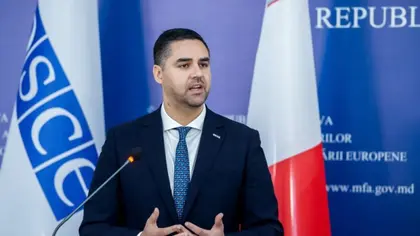
OSCE Head in Moldova to Boost Talks on Settling Separatist Dispute
Despite everything, Russian President Vladimir Putin’s regime and the largely docile Russian nation, still claim and believe they are waging a just war (masked as Putin terms it, a “special military operation”) against the irrepressible Ukrainians.
Having reaffirmed its European, democratic self-identification time and time again, the modern political nation of Ukraine, with a leader of Jewish roots and initially a Russian-speaker who won a landslide victory in the presidential election in 2019, is depicted by Putin’s regime as “anti-Russia,” nationalist, fascist, Nazi and even satanist.
Ukraine’s crime, in Moscow’s view, is its rejection of the Eurasian autocratic notion of a civilization with “Russia uber alles,” and that it wants to rejoin its democratic European family, to integrate into Euro-Atlantic structures so as to ensure its security and wellbeing.
Russian schizophrenia
Through its actions in Ukraine, Russia has chosen to take on a world that is, on the one hand, a magnet and a source of envy, if not a sense of inferiority, and, on the other, one with alien values that represent a threat. Not so much because of the West’s military strength, but precisely because it represents an alternative way of life, a progressive democratic civilization, which exposes the political, social and cultural and backwardness of Russia.
And hence the inherent perverse Russian schizophrenia – the land of the Bolshoi ballet, Hermitage, Pushkin and Dostoyevsky, and yet still so savage.
Hypocritically, Russian rulers, oligarchs and the otherwise wealthy have sent their children to study and live abroad. They have bought luxury homes, villas and yachts to relax in the West, and have invested or money laundered their wealth there. Meanwhile, at home, they proclaim the self-serving mantras that Russia is different, superior, all powerful, and a law and civilization onto itself.
Autocracy, kleptocracy, censorship, the constant distortion of history, xenophobia, chauvinism, brutality, bravado, and atavistic Russian Orthodoxy as a prop of an intolerant, oppressive state – are all part of the psychotic makeup of contemporary Russia, which make it so extrapolated from what it traditionally was.
From Asiatic Muscovy to Imperial Russia
For almost three centuries, from the 1200s to the 1500s, Muscovy, as Russia was initially known, was under the “Tatar yoke” until the ruthless Ivan the Terrible cast it off. His state was cut off from Europe and its ways. Nevertheless, because of the Orthodox Christian faith taken from Byzantium’s Constantinople via Kyiv, after the Turks took Constantinople in 1453, Muscovy’s clergy and rulers, considered themselves the Third Rome.
Tsar Peter I, a tyrant himself, failed at the beginning of the eighteenth century, even after recruiting scholars and “reformers” from Kyiv, to “Europeanize” his isolated, backward, Muscovite enclave of oriental despotism. He nevertheless changed its name to “Russian Empire,” Ukrainian and other non-Russian lands being forcibly incorporated within it.
Shortly afterwards, in 1731, that first great modern European, Voltaire noted in his first book that “L’Ukraine a toujours aspire a etre libre.” (Ukraine has always aspired to be free). Fifty years later, the “great enlightened ‘Russian’ monarch” – the German Empress Catherine, an enthusiastic correspondent of Voltaire’s, destroyed the last vestiges of Ukrainian autonomy and imposed serfdom on its population.
In the nineteenth century, despotism and imperialism prevailed, with sycophantic literary figures admired in the West, such as Pushkin and Dostoyevsky, extolling the tsarist empire’s virtues. Then, insubordinate Poland played the role which Ukraine has since taken over, as the freedom-loving bone stuck in Russia’s imperial throat.
It is telling that such bitter enemies, as Britain and France were during the Napoleonic Wars, became allies less than 40 years later and, together with the Ottoman Empire and others, confronted the rapacious Russian giant in the 1850s in Crimea.
Ironically at that time, the authors of the Communist Manifesto, Karl Marx and Friedrich Engels, abhorred the Russian empire which after its transformation after 1917 into a Soviet communist one, was to idealize them.
Engels described it as a “detainer of an immense amount of stolen property which would have to be disgorged on the day of reckoning.” Marx went even further and, in 1864, at the first International in London, denounced:
“The shameless approval, demonstrative sympathy or idiotic indifference with which Europe’s upper classes observed Russia’s conquest of the Caucasian fastnesses and her murder of heroic Poland.”
Less than a century later, having been an ally of Nazi Germany against the democratic world, the Soviet Union found itself attacked by Hitler and fought against him with its previous democratic enemies. As soon as Hitler was defeated, expansionist Russia was up to its old ways – imposing its control over eastern and central Europe and precipitating the Cold War.
True to form
Moscow subsequently cunningly projected itself as an anti-Western world leader and bulwark – an ideological alternative, military Hercules, and power broker and economic patron, and for decades got away with it. But the days of reckoning finally arrived in 1989-91 when eastern and central Europe cast off Moscow’s domination, and then the mighty Soviet Union itself disintegrated into 15 independent states.
After a brief democratic interlude under Boris Yeltsin in the 1990s, Putin, like a latter-day Hitler angry with the results of the Treaty of Versailles, arrived on the Russian scene and declared the dissolution of the Soviet empire as a great calamity. In December 2021 he lamented “the disintegration of historical Russia under the name of the Soviet Union,” having previously described it as the “greatest geopolitical catastrophe of the 20th century.”
Under Putin, the would-be resurgent Russian imperialist colossus, emboldened by its energy resources, combined with Ukraine’s and Europe’s growing dependence on them, began to deny the right of its former colonies to self-determination. It claimed that by not blocking the wishes of Ukraine, Moldova and Georgia to join the West, Washington, NATO, the EU, etc., were threatening its interests, rights and security.
In 2014, and then again in 2022, Russia attacked Ukraine, unleashing war and grabbing land but expecting the West to put up with it. But the latter was no longer as accommodating as before and finally told Russia in strong words and convincing deeds that it saw through it and would not allow it to get away with its traditional imperialism, cynicism and disdain for the norms of international law and civilized behavior.
To be continued.
Bohdan Nahaylo, Chief Editor of Kyiv Post, is the author of Soviet Disunion: A History of the Nationalities Problem in the USSR, and The Ukrainian Resurgence.
The views expressed are the author’s and not necessarily of Kyiv Post.
You can also highlight the text and press Ctrl + Enter


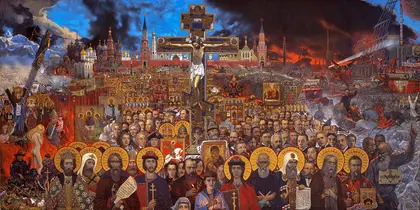
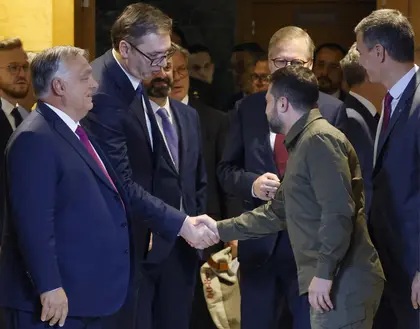
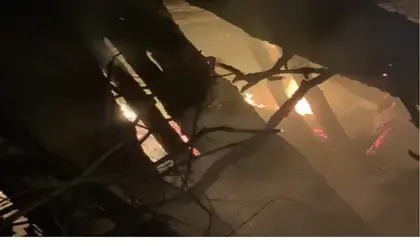
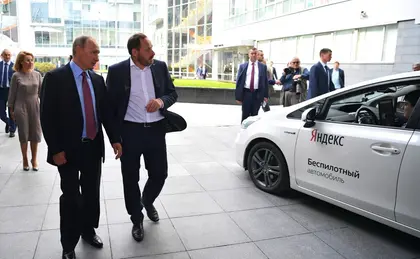
Comments (0)